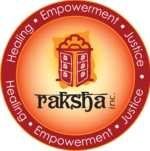Check our MLK Day posts on Facebook & Instagram
This year, on Martin Luther King Day, it is even more important to vocalize and honor Dr. Martin Luther King Jr’s life and work. Dr King was one of the leading civil rights leaders, whose words and philosophy still ring true, five decades after his death. He stood for the universal values of equality, non-violence and peaceful civic transformation, community and human fraternity.
While he encouraged fighting for these rights with a non-violent, community-wide movement within America, he was quick and open to reach outward. Famously inspired by the freedom movement in India and Mahatma Gandhi’s theory of nonviolence, he also was quick to provide vocal support for international movements and leaders asking for justice and equality. He saw the connection between justice at home and outside and believed that the fight against injustice and inequality should not rest with a victory over injustice in one part of the world or society. One of the most significant features of MLK’s legacy lies in how vocally he stood for movements for justice and equality outside America as well.
In his “Letter from a Birmingham Jail,” Dr King writes that non-violent action pushes society to “rise from the dark depths of prejudice… to the majestic heights of understanding.” The continuous agitation of non-violent protest shifts culture over time. There is gentle yet powerful strength in steady and peaceful dissonance as it pulls society up steadily until it no longer becomes possible for the need for change to stay invisible. He wrote, “When you are forever fighting a degenerating sense of ‘nobodiness’ then you will understand why we find it difficult to wait.” Black Lives Matter has shown it will not wait – black people around the world are asserting their rights to be treated as human beings, to be afforded space to breathe as easily as the rest of us.
We also see a clear intersectionality between MLK’s ideas around societal change and the work of organizations like ours, towards healing, empowerment and justice. Black feminism, for example, teaches us that women’s empowerment must align with racial justice and freedom. Alice Walker’s definition of womanism includes “committ[ment] to survival and wholeness of entire people, male and female.”
On those lines, eliminating domestic violence and abuse in our society involves a journey after justice and survival that seeks wholeness and empowerment. In a truly liberated world, domestic violence will no longer be able to separate survivors from their power and agency. To end domestic violence, we must center non-violence, gender equity and the need to treat all people with respect. To end domestic violence, we must not allow an unwillingness to speak on a taboo subject to make survivors invisible, to degenerate into “nobodiness.” Healing needs dialogue, and empowerment means everyone gets to have a voice. Only then can we achieve justice by changing cultural biases.
Dr. King’s legacy also leads us to reflect on mutuality and intersections, and how they can aid in the movement for healing, empowerment and justice, globally. For example***, one of the ongoing influences of the Black Panther Party (BPP) in South Asia is the Dalit Panther Movement (DPM), now the Dalit Panthers Iyyakkam (DPI). A Tamil political party, the DPI shares the same goals as the original DPM: a path to equality for Dalit people and an end to oppressive caste hierarchies that unfairly target women. The DPM was named after a feature on the BPP in Time magazine, and the founders learned from Black American theories of oppression.
In the United States, many South Asian children benefit from the free breakfast program in schools, an initiative which was started by the BPP. Civil rights movements also drew attention to other racial disparities, leading the US government to abolishing race-based immigration discrimination via the 1965 Hart-Celler Act. South Asians were able to immigrate to the United States and seek economic opportunity and shelter as they were not able to before.
This MLK Day, let’s honor the legacy of Dr King’s history from the lens of the universality of the values he promoted as well as the tools and ideas from global mutualities and intersections that can guide us in the search of equity and justice in society.
Rukmini Kalamangalam, Community & Outreach Liaison
*** The examples of intersection in this blog are intended to serve as examples of inspired movements or ideas and do not attempt to represent Raksha, Inc’s position on political or historical events by the author.
